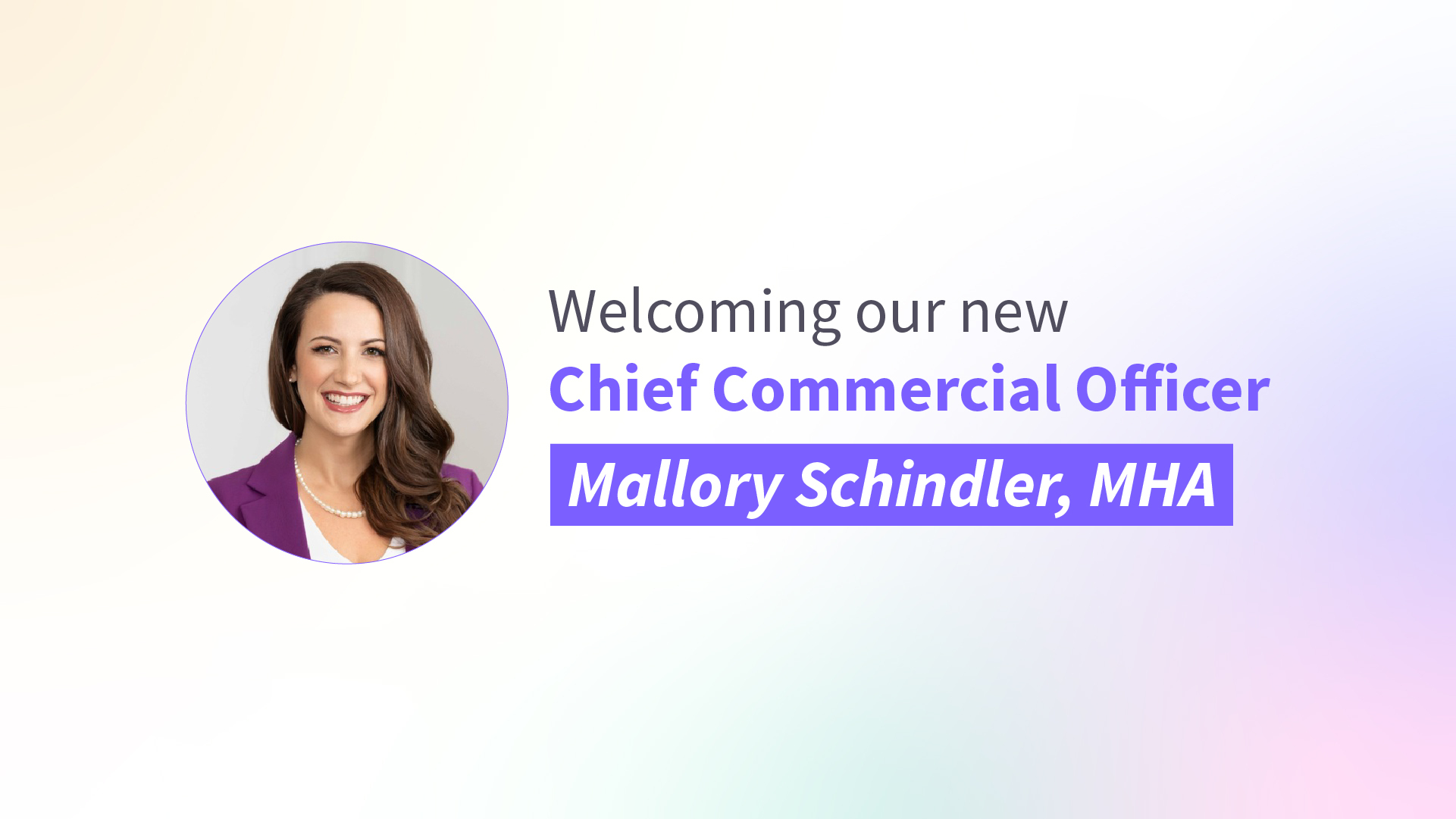Northern Kentucky University Nurse Practitioner Students Clinical rotations
Northern Kentucky University nurse practitioner students are responsible for securing their own clinical rotations and preceptors to meet program requirements for graduation and certification. The university provides guidance, resources, and deadlines, but students must take the lead in finding sites that meet specialty-specific criteria, state regulations, and NKU College of Nursing standards.
TL;DR – Northern Kentucky University NP Clinical Rotations
- You are responsible for your own placements. NKU provides guidance, resources, and approval processes, but students must independently find and secure clinical sites and preceptors that meet program, specialty, and state requirements.
- Competition is shaped by Kentucky’s NP distribution. Most preceptors are concentrated in urban counties like Jefferson and Fayette, while rural and underserved areas often have very few or no eligible providers.
- Start early to meet deadlines. Begin searching at least 4–6 months before your semester to allow time for outreach, site approval, compliance requirements, and any site-specific onboarding or training.
- Specialty impacts placement difficulty. PMHNP and AGACNP students often face more competition for rotations, while FNP students may find more sites available but still need to compete for high-demand locations.
- Support is available if you get stuck. Services like NPHub connect NKU students with vetted, NKU-approved preceptors across specialties and locations, helping avoid delays that can push back graduation.
Why Clinical Rotations Are Getting Harder to Secure for Northern Kentucky University NP Students
For nurse practitioner students in Northern Kentucky University, finding a site for clinical rotations is a challenge shaped by Kentucky’s healthcare landscape.
According to the Kentucky Nursing Workforce Report 2023, there are 6,460 Advanced Practice Registered Nurses (APRNs) in the state, and nurse practitioners make up nearly 86% of that number. On paper, that sounds promising. In reality, most of these providers are concentrated in just a few areas, leaving large parts of the state underserved.
The data shows that 65.9% of APRNs work in urban areas, while only 34.1% practice in rural regions. Even more striking, 42% of Kentucky counties have only 1–10 APRNs total, and in some places like Robertson County, there are none at all.
For Northern Kentucky University clinical placements, this means the preceptors most students need are often clustered in cities like Jefferson County (19% of all APRNs) and Fayette County (10%), creating heavy competition for sites.
This uneven distribution creates a ripple effect:
- Geographic maldistribution forces many APRNs living in rural counties to travel to urban areas for work, meaning fewer available clinical sites in their own communities.
- Specialty shortages are common outside metro areas, especially in psychiatric mental health and acute care, making these specialty courses harder to place for NKU students.
- Counties in the Appalachian and Delta regions face persistent provider shortages, a gap that most students in NP programs could help fill—but only if clinical experience opportunities exist there.
Adding to the challenge is Kentucky’s strong emphasis on primary care. Nearly 65% of APRNs work in family medicine, which means that Northern Kentucky University nurse practitioner students in other tracks may face even more competition for placements in their specialty area.
While nursing practice in Kentucky benefits from a relatively good APRN-to-population ratio (506 people per APRN vs. a national average of 1,159), the shortage of eligible providers in certain counties means students need to start their search for Northern Kentucky University clinical rotations early, ideally months before their semester begins.
The NKU college of nursing provides guidance, resources, and criteria for preceptors, but the responsibility to submitapplications, complete criminal background checks, and secure a site rests with the student.
For many, this process is complicated by family responsibilities, work schedules, and accelerated courses in the MSN curriculum. Without proactive planning, students risk delaying their degree completion, which can affect both their career timeline and their ability to serve the community as graduate-level providers.
When you're expected to find your own preceptor, complete compliance steps, and juggle everything else on your plate, staying ahead is essential.
That’s why NPHub now offers multi-rotation bundles specifically for NKU FNP and PMHNP students. Available in Houston, Miami, Dallas–Fort Worth, and Los Angeles, these bundles give you the ability to reserve multiple future rotations in one step, so you don’t have to start from scratch each semester. If you're not sure what’s possible based on your timeline or budget, a Preceptor Matching Specialist can help you map it out.
Create your free NPHub account today to access a network of vetted preceptors, see real-time availability in your specialty, and lock in your placement before your semester starts. No cold calls, no guesswork, just a faster path to completing your program and graduating on time.
How to Secure Your Northern Kentucky University Clinical Placement
As we saw in the Kentucky Nursing Workforce Report 2023, the competition for Northern Kentucky University clinical rotations is fueled by an uneven distribution of nurse practitioners across the state, with most clustered in urban counties and fewer options in rural and underserved areas. That’s why securing your site and preceptor for your specialty courses requires a structured, deliberate approach — not last-minute scrambling.
Here’s a detailed, step-by-step guide to help you secure your placement on time.
Step 1: Understand NKU’s Requirements in Detail
Before you send a single email, get crystal clear on what the Northern Kentucky University nurse practitioner program expects from your clinical practice site and preceptors.
- If you’re in the Family Nurse Practitioner track, your site must provide access to patients across the lifespan, from pediatrics to geriatrics. If you’re in psychiatric mental health, you’ll need a behavioral health or mental health-focused site with a supervising clinician in your specialty.
- Review your course syllabus to see what procedures and competencies you’ll be evaluated on. For example, you may be expected to conduct full patient assessments, prescribe medications under supervision, provide patient counseling, or perform preventive care interventions.
- NKU only approves preceptors with the right licenses, credentials, and at least one year of clinical experience in your specialty. They must also be located in a state where NKU has authorization for clinical placements.
- Expect to complete a criminal background check, drug screening, proof of immunizations, and possibly site-specific training modules before you can start. These steps can take weeks, so don’t delay.
Step 2: Target Sites with a Strategy, Not a Shotgun Approach
Kentucky’s APRN distribution means that high-demand counties like Jefferson and Fayette are saturated with students seeking the same clinical sites. To improve your odds:
- If you live in an urban area, consider looking at suburban or rural sites within commuting distance. Many underserved counties welcome NP students and may offer richer learning opportunities.
- Talk to current and past NKU students, faculty, and local health professionals. Sometimes, a warm introduction is more effective than sending a cold email to an unfamiliar clinic.
- Don’t limit yourself to large hospitals. Community clinics, school-based health centers, urgent care facilities, human services agencies, and specialty practices can all be excellent clinical practiceenvironments.
- The state has gaps in psychiatric mental health and acute care in rural areas. If your specialty matches one of these shortage areas, you may find less competition and a higher acceptance rate.
Step 3: Craft Outreach That Gets a Response
When contacting a potential preceptor, your goal is to make it easy for them to see who you are, what you need, and why they should say yes. Include:
- State your name, your track in the Northern Kentucky University nurse practitioner program, and that you’re seeking a clinical rotation for a specific semester.
- Include your required start and end dates, the number of hours you need to complete, and the types of patients or conditions your specialty course requires.
- Mention relevant courses you’ve completed, such as advanced health assessment or evidence-based practice, to show you’re prepared to contribute.
- Emphasize that you’re eager to learn, flexible, and committed to supporting the preceptor and their patients.
- Attach a concise, well-organized CV that highlights your nursing practiceexperience, education, and certifications.
Step 4: Follow Up Like a Professional
Persistence can make the difference between securing your site and missing a semester.
- Wait 5–7 days before checking in after your initial outreach.
- If email goes unanswered, try calling the office directly or connecting on LinkedIn.
- Acknowledge how busy providers are and keep your messages short and respectful.
- Use a spreadsheet to log who you’ve contacted, when, and what their response was. This will keep you organized and help you avoid contacting the same site twice.
Step 5: Always Have a Backup Plan
Even a confirmed clinical site can fall through if the preceptor changes jobs, the clinic changes policy, or onboarding gets delayed.
- Have at least two backup sites that meet NKU’s requirements and are willing to consider students.
- Keep your criminal background check, immunization records, and application materials ready so you can pivot quickly.
- Be open to sites outside your immediate area or those that require a commute if it means graduating on time.
Struggling to find a preceptor or worried about hitting NKU’s deadlines? NPHub takes the stress out of securing your Northern Kentucky University clinical rotation. Their team connects you with vetted, NKU-approved preceptors who already meet your program and state requirements.
You can browse availability, location, and specialty matches before you even make contact, no cold calls, no guesswork. Create your free NPHub account today and lock in your placement so you can focus on your courses, your patients, and graduating on time.
What to Expect During Your Northern Kentucky University Clinical Placements
Clinical rotations for Nurse Practitioner Students means more than just completing assignments and attending classes, it means preparing for hands-on clinical experience that will shape your future as an advanced nursing practice professional.
Your clinical rotations are where you’ll apply the knowledge, skills, and decision-making strategies you’ve built in the classroom to real patients in diverse healthcare settings.
At NKU, clinical rotations are intentionally designed to mirror the demands and variety of actual clinical practice. Depending on your specialty track, you could be managing chronic illnesses in a primary care clinic, supporting mental health treatment plans in a psychiatric mental health facility, or providing acute care in a hospital environment.
What makes NKU’s approach unique is its emphasis on student-led placements. While the faculty and college of nursing offer resources, approval guidelines, and preceptor requirements, most students will need to identify and secure their own site. That means reaching out to potential providers, submitting paperwork for review, and meeting all onboarding requirements — from criminal background checks to site-specific orientations — well before your semesterbegins.
During your rotations, you’ll work closely with your preceptor to refine your patient communication skills, strengthen your clinical reasoning, and gain exposure to diverse cultures, age groups, and health conditions. Each clinical experience is structured to reinforce your specialty courses while meeting NKU’s curriculum standards for evidence-based practice and patient care.
By the end of your rotations, you should be confident not only in your ability to care for patients, but also in your understanding of the systems, relationships, and workflows that make up the healthcare environment. These experiences are the bridge between being a student and stepping into your role as a graduate-level nurse practitioner — ready to serve your community and advance the profession.
Most NKU students are balancing work, family, and fast-moving MSN courses, which makes financial planning around clinicals even more important.
NPHub’s bundle pricing gives you the option to secure 2, 3, or 4 rotations with a single deposit and then spread the rest across 12, 18, or 24 months. No hidden fees. No last-minute surprises. Just a structure that helps you move through your program without derailing your budget. Connect with a Preceptor Matching Specialist, break down the options and you choose what fits best.
Northern Kentucky University NP Programs That Require Clinical Rotations
By now, you already know the lectures, papers, and late-night chart reviews are just one part of your NP journey.
The real growth happens in clinical rotations where your skills, confidence, and adaptability get tested in real-world settings. At Northern Kentucky University, you’re responsible for lining up your own NKU-approved clinical placement and preceptor, which means balancing this search with exams, work, and everything else on your plate. It’s challenging, but it’s also where all that hard work starts paying off.
NKU’s nurse practitioner tracks are designed to push you further in your specialty, from handling complex acute care cases to delivering primary care across all ages, or guiding patients through mental health treatment. Your clinical experience will look different depending on your path but in every case, it’s your opportunity to prove you’re ready for advanced nursing practice in the real world.
Adult-Gero Acute Care Nurse Practitioner (AGACNP)
You’re training to handle the tough cases—patients with high-acuity, complex needs that require fast thinking and precise intervention. Your clinical placements will likely be in hospitals, ICUs, emergency departments, or rehab centers, where you’ll collaborate with teams managing acute and chronic conditions.
Expect to integrate advanced diagnostics, acute care technologies, and evidence-based practice daily. By the time you graduate, you’ll be ready to sit for the Adult-Gero Acute Care NP certification and take on roles where every decision can change an outcome.
Family Nurse Practitioner (FNP)
FNPs are the ultimate generalists, caring for patients from newborns to older adults in a variety of primary care settings. Your rotations might take you from a busy community clinic one semester to a rural health department the next. You’ll work on preventive care, chronic disease management, and health promotion for patients across all ages and backgrounds.
The ability to pivot between wellness visits, acute care complaints, and long-term treatment plans will be key. Once you graduate, you’ll be ready to sit for your FNP certification and bring that versatility to any setting.
Psychiatric-Mental Health Nurse Practitioner (PMHNP)
Mental health care demands not just clinical expertise, but also empathy, cultural sensitivity, and patience. In your PMHNP rotations, you’ll be diagnosing and managing psychiatric conditions across the lifespan, sometimes in inpatient behavioral health units, sometimes in outpatient clinics, sometimes through community outreach.
You’ll combine psychopharmacology, psychotherapy, and patient education to address mental health needs at both the individual and population level. NKU’s program also aligns with regional priorities, meaning your training supports urgent community needs like the opioid crisis. After graduation, you’ll be eligible for the ANCC PMHNP certification and prepared to make a real difference in mental health care access.
No matter your track, you’ll need an NKU-approved preceptor and site that meet all program and state requirements. This can be one of the most time-consuming parts of the process, but it doesn’t have to be.
Turning Your NKU Clinical Rotation Search Into a Sure Thing with NPHub
Even for the most organized NP students, locking in Northern Kentucky University clinical placements isn’t a quick or easy process. You’re balancing coursework, patient simulations, faculty check-ins, and your own life outside of school all while hunting down a site and preceptor who meets NKU’s standards and your specialty requirements.
And with so many NP students in Kentucky and surrounding states competing for the same limited pool of qualified preceptors especially in high-demand specialties delays are common. That’s why the students who stay ahead start searching early, keep multiple leads warm, and have a backup plan ready from day one.
NPHub already works with vetted preceptors in these specialties (and more), matched specifically to NKU criteria. Create your free NPHub account today and discover who’s available, where they’re located, and which patient populations they serve before you ever send an email and lock in your spot.
The further into your program you go, the more you realize how much time is lost repeating the same admin tasks, explaining your program again, or trying to confirm availability late in the game.
Here’s what NPHub looks like in action for NP students:
- Specialty-specific matches: Whether you’re in AGACNP, FNP, or PMHNP, your match will reflect the patient population and clinical setting you need to graduate.
- Pre-vetted sites: You’re not cold-calling strangers; you’re stepping into clinics that already know how to integrate a student into their workflow.
- Speed to approval: NPHub’s team works with sites to get contracts signed and onboarding cleared before your semester start date, so you’re not stuck waiting on paperwork.
- Built-in contingency plans: If something falls through mid-rotation, you won’t have to start from zero. NPHub keeps alternate options in reserve so you can pivot quickly.
NKU students using NPHub bundles are prioritized in the matching process, get earlier access to preceptors in supported cities, and avoid redundant paperwork between rotations. It’s not just about convenience, it’s about keeping your graduation date on track without added stress.
Your program is already giving you the academic foundation and skills you need, but without a locked-in clinical site, you can’t apply them in practice.
NPHub bridges that gap, removing the guesswork and wasted time so you can focus on patient care, not placement politics. Take control of your rotations now, create your free NPHub account today to see current preceptor availability.
FAQ: Northern Kentucky University Nurse Practitioner Students Clinical Rotations
1. Do Northern Kentucky University nurse practitioner students find their own clinical placements?
Yes. Northern Kentucky University NP students are responsible for finding and securing their own clinical placements and preceptors that meet NKU’s College of Nursing and state requirements. While NKU provides resources, templates, and guidance, students must handle outreach and approval themselves.
2. When should I start looking for my Northern Kentucky University clinical rotation?
Begin 4–6 months before your semester starts to allow enough time for preceptor agreements, NKU approval, and compliance tasks like criminal background checks, drug screenings, and site-specific onboarding.
3. How is NKU’s nurse practitioner clinical placement process different from other schools?
NKU follows a student-driven clinical placement model, giving you flexibility to choose your own site and preceptor. Some NP programs assign placements, but NKU expects you to manage your own search from start to finish.
4. Which NKU nurse practitioner specialties are hardest to place?
Psychiatric-Mental Health Nurse Practitioner (PMHNP) and Adult-Gerontology Acute Care Nurse Practitioner (AGACNP) students often face the most competition, especially in rural or underserved counties. Family Nurse Practitioner (FNP) placements are more common but can be competitive in urban areas.
5. Can NKU nurse practitioner students do clinical rotations in another state?
Yes — as long as the site is in a state where NKU is authorized to place students. Your preceptor must hold an active license in your specialty and meet all NKU and state board requirements.
6. How does NPHub help Northern Kentucky University NP students with clinical rotations?
NPHub matches students to vetted, NKU-approved preceptors in their specialty and preferred location. You’ll see availability, patient population, and site details before making contact, saving weeks of cold calls and uncertainty.
7. What is the cost of using NPHub for NKU nurse practitioner clinical placements?
NPHub charges a one-time placement fee that depends on specialty, location, and urgency. Many NKU NP students find the cost worthwhile to avoid delays that could postpone graduation and impact career plans.
8. What if my Northern Kentucky University clinical site cancels?
If your placement falls through, you’ll need to quickly secure another NKU-approved site to avoid losing your semester. NPHub provides backup placement options so students can pivot quickly and stay on track.
9. Are rural NKU clinical rotations as good as urban ones?
Yes — and often better. Rural clinical sites may offer a broader range of experiences since providers see a wider variety of conditions. They also tend to have less competition for preceptor spots compared to urban hospitals and clinics.
10. What’s the biggest misconception about Northern Kentucky University clinical placements?
That finding a preceptor is easy because “Kentucky has a lot of NPs.” In reality, most NPs are clustered in a few urban counties, leaving many rural and underserved areas with very few qualified preceptors — making early planning essential.
Key Definitions
- Preceptor
- A licensed NP, physician, or other qualified clinician who supervises you during your clinical rotations.
- Clinical Site
- The hospital, clinic, or practice where your rotation takes place.
- Specialty Track
- Your NP focus area, such as Family Nurse Practitioner (FNP), Psychiatric-Mental Health Nurse Practitioner (PMHNP), or Adult-Gerontology Acute Care Nurse Practitioner (AGACNP).
- State Authorization
- Legal approval for NKU to place students in clinical sites in a given state.
- Onboarding
- The process a site requires before you can start, which may include background checks, drug screenings, and training modules.
- Competencies
- The specific skills and procedures you must demonstrate during your clinical rotations.
- Affiliation Agreement
- The formal contract between NKU and the clinical site that allows you to complete your rotation there.
- Semester Deadline
- The last date by which your preceptor and site must be approved for a given term.
- Compliance Requirements
- Mandatory documents and checks (e.g., immunization records, CPR certification, liability insurance) that must be submitted before starting your rotation.
- Patient Population
- The group of patients you will be working with, defined by age range, health conditions, or care needs, based on your specialty track.
About the author
- NPHub Staff
At NPHub, we live and breathe clinical placements. Our team is made up of nurse practitioners, clinical coordinators, placement advisors, and former students who’ve been through the process themselves. We work directly with NP students across the country to help them secure high-quality preceptorships and graduate on time with confidence. - Last updated
Aug 12, 2025 - Fact-checked by
NPHub Clinical Placement Experts & Student Support Team - Sources and references
- https://www.nku.edu/academics.html
- https://onlinedegrees.nku.edu/programs/healthcare/msn/agacnp/
- https://onlinedegrees.nku.edu/programs/healthcare/msn/fnp/
- https://onlinedegrees.nku.edu/programs/healthcare/msn/pmhnp/
- https://medicine.uky.edu/sites/default/files/inline-files/2023%20Kentucky%20Nursing%20Workforce%20Report.pdf
- https://www.nphub.com/preceptor-matching-specialists
Find a preceptor who cares with NPHub
Book a rotation.webp)








.webp)


.webp)



.webp)